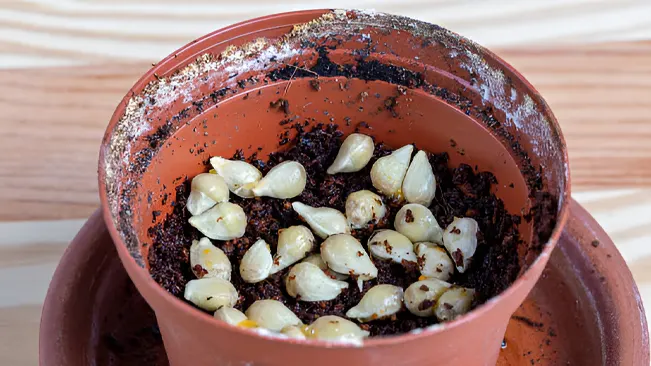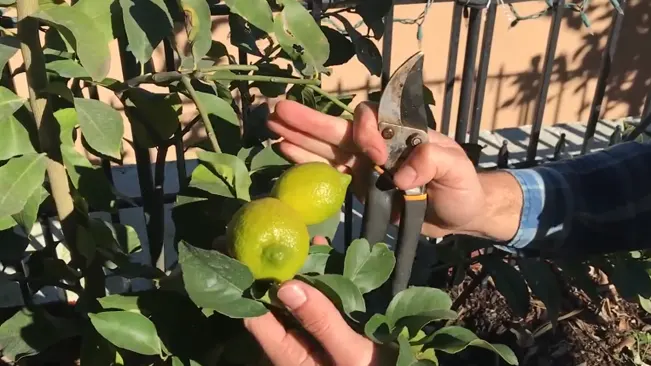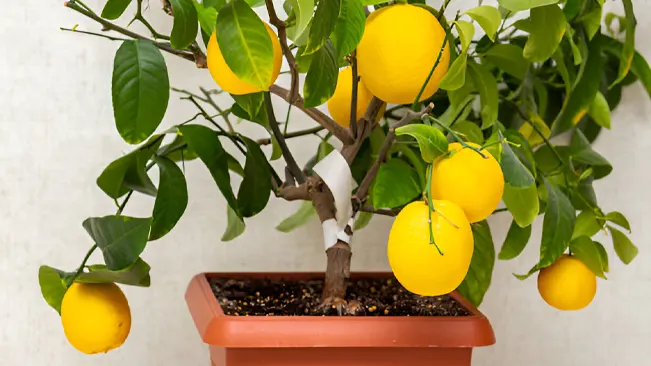How Long for Lemon Trees to Bear Fruit From Seed
- September 27, 2024
- 0 comment
Growing lemon trees from seeds is an attractive option for many because it’s cost-effective and straightforward. However, the lengthy wait time for the tree to mature and produce fruit can be a drawback.

Many people are eager to cultivate their own citrus trees, but when you start from a seed, it could take anywhere from 4 to 15 years for the tree to bear fruit. Why such a wide range? Several factors, including growing conditions, variety of lemon trees, and care, can influence the timeline.
The Process of Growing a Lemon Tree From Seed
To understand how long it takes for a lemon tree to bear fruit from seed, it’s important to define key terms and processes. A lemon seed must first germinate and develop into a sapling before it can mature into a fruit-bearing tree.
- Germination: This is the initial stage where the seed begins to sprout. Depending on the conditions, lemon seeds usually take two to four weeks to germinate.
- Maturation: After germination, the seedling grows into a young tree, but it won’t be ready to produce fruit right away. Lemon trees grown from seeds typically take many years to reach maturity.
- Fruit-bearing stage: Only when the tree has matured can it start producing flowers, which eventually turn into lemons. However, the time to fruit production varies based on different factors.
Things That Affect How Fast Lemon Trees Grow Fruit
Several factors determine how quickly a lemon tree will produce fruit, ranging from environmental conditions to the specific variety of lemons you’re growing.

- Type of Lemon Tree: Some varieties of lemon trees grow faster than others. For instance, the Eureka lemon tree, a common variety, tends to mature faster than the Lisbon lemon tree. Dwarf varieties may also take less time, but they might not produce as many lemons as full-sized trees.
- Growing Environment: The environment in which you grow your lemon tree plays a huge role in its development. Lemon trees require plenty of sunlight (at least 8 hours a day) and thrive in warm, subtropical climates. Trees grown indoors or in cooler climates may take longer to bear fruit due to less optimal conditions.
- Soil Quality and Watering: Lemon trees need well-draining soil with a slightly acidic pH (around 5.5 to 6.5) for the best growth. Watering should be consistent but not excessive—overwatering can lead to root rot, which delays the tree’s development.
- Nutrient Availability: Lemon trees are heavy feeders, requiring regular fertilization to support healthy growth. A balanced fertilizer rich in nitrogen, phosphorus, and potassium, along with micronutrients like magnesium and iron, is crucial. Deficiencies in these nutrients can delay the fruiting process.
- Pruning and Maintenance: Proper pruning helps the tree focus its energy on growing fruit instead of excessive foliage. Pruning should be done annually to remove dead or diseased branches, allowing sunlight and air to reach the inner parts of the tree, encouraging fruit production.
- Rootstock Influence: Lemon trees grown from seeds often have a longer timeline to fruit than those grafted onto a mature rootstock. Many commercial lemon trees are grafted because it accelerates the fruiting process, sometimes by years. Seed-grown trees, on the other hand, take time to develop a strong root system before focusing on fruiting.
Varieties of Lemon Trees and Their Impact on Fruiting Time
There are several popular varieties of lemon trees, each with different characteristics that can influence how quickly they bear fruit.

Eureka Lemon
This is the most common type of lemon found in grocery stores. Eureka trees can take around 5 to 7 years to bear fruit when grown from seed.
Lisbon Lemon
This variety is very similar to Eureka but is slightly more cold-tolerant. Lisbon lemons typically take about 6 to 10 years to bear fruit.


Meyer Lemon
This is a hybrid between a lemon and a mandarin orange. Meyer lemon trees are popular for home gardening because they often produce fruit faster, sometimes within 4 years, and can be grown in pots or indoors.
Each type of lemon tree has its own growth rate and fruit-bearing timeline. If you’re eager to harvest lemons sooner, consider choosing varieties known for quicker maturation, like the Meyer lemon.
Practical Tips to Encourage Faster Fruiting
While patience is required when growing a lemon tree from seed, there are practical steps you can take to encourage faster fruit production.

- Choose the Right Variety: As mentioned, some varieties, like Meyer lemons, tend to bear fruit sooner than others. Researching the type of lemon tree that suits your climate and needs can help shorten the wait.
- Use a Grafted Tree: If you’re more interested in fruit production than growing a tree from seed for the sake of it, consider buying a grafted lemon tree. These trees usually begin fruiting within 2 to 3 years, much faster than those grown from seed.
- Ensure Adequate Light: Lemon trees need plenty of sunlight to thrive. If you’re growing your tree indoors, place it near a south-facing window or use grow lights to ensure it receives at least 8 hours of light daily.
- Regular Feeding and Watering: Feed your tree with a balanced citrus fertilizer during the growing season (spring and summer) to promote healthy development. Water regularly, but make sure the soil drains well to avoid waterlogged roots.
- Prune for Growth: Remove any dead, damaged, or excess branches to direct the tree’s energy toward fruit production. A well-maintained tree will often bear fruit more quickly.
- Be Patient: It’s essential to manage expectations when growing a lemon tree from seed. Even with optimal care, it will take time for the tree to mature and begin fruiting. Enjoy the process, knowing that the reward will eventually come.
Conclusion
Growing a lemon tree from seed is a long-term commitment that requires patience and care. While it can take anywhere from 4 to 15 years for a lemon tree to bear fruit, several factors like tree variety, growing environment, and care practices can influence this timeline. If you’re looking for quicker results, grafted trees or certain varieties like Meyer lemons might be the way to go.
Ultimately, the satisfaction of picking your first homegrown lemon will be worth the wait. Just be sure to provide your tree with the right conditions, nutrients, and care to help it thrive and produce fruit as soon as possible.
Frequently Asked Questions (FAQ)
- How long does it take for a lemon tree to bear fruit from seed?
It can take anywhere from 4 to 15 years for a lemon tree grown from seed to bear fruit, depending on factors like the variety of the lemon, growing conditions, and care. - Can I speed up the time it takes for my lemon tree to bear fruit?
Yes, you can encourage faster fruiting by ensuring optimal growing conditions like adequate sunlight, proper fertilization, regular pruning, and ensuring the tree is planted in well-draining, slightly acidic soil. - Do all lemon trees grown from seed produce fruit?
Not necessarily. Lemon trees grown from seed may not always produce fruit, or the fruit they bear could be different in quality or flavor from the parent tree. Grafted trees are more reliable for fruit production. - What’s the difference between growing a lemon tree from seed and buying a grafted tree?
A grafted lemon tree will typically bear fruit within 2 to 3 years, much faster than a tree grown from seed. Grafted trees also ensure consistency in fruit quality and size, while seed-grown trees may vary. - What type of lemon tree is best for home gardening?
Meyer lemons are often recommended for home gardening because they tend to bear fruit sooner and can be grown in pots or indoors. They’re also sweeter and less acidic than regular lemons. - Can I grow a lemon tree indoors?
Yes, you can grow a lemon tree indoors, especially smaller varieties like Meyer lemons. However, you’ll need to provide plenty of sunlight or supplement with grow lights, and make sure the tree is in a pot with good drainage. - Why is my lemon tree not producing fruit?
If your lemon tree isn’t producing fruit, it could be due to several factors: insufficient sunlight, improper fertilization, poor watering practices, or the tree may simply be too young. Ensure the tree gets the care it needs and be patient as it matures.

Emma Hudson
Forestry AuthorEmma's experience in farming shapes her detailed guides on gardening and farming tools, providing practical, actionable advice grounded in real-world experience. Her work targets both newcomers and experienced farmers, aiming to enhance their practices with a mix of traditional wisdom and modern techniques. By making complex agricultural concepts accessible, Emma's guides serve as valuable tools for those navigating the challenges of contemporary farming, offering strategies for sustainable success.













Leave your comment